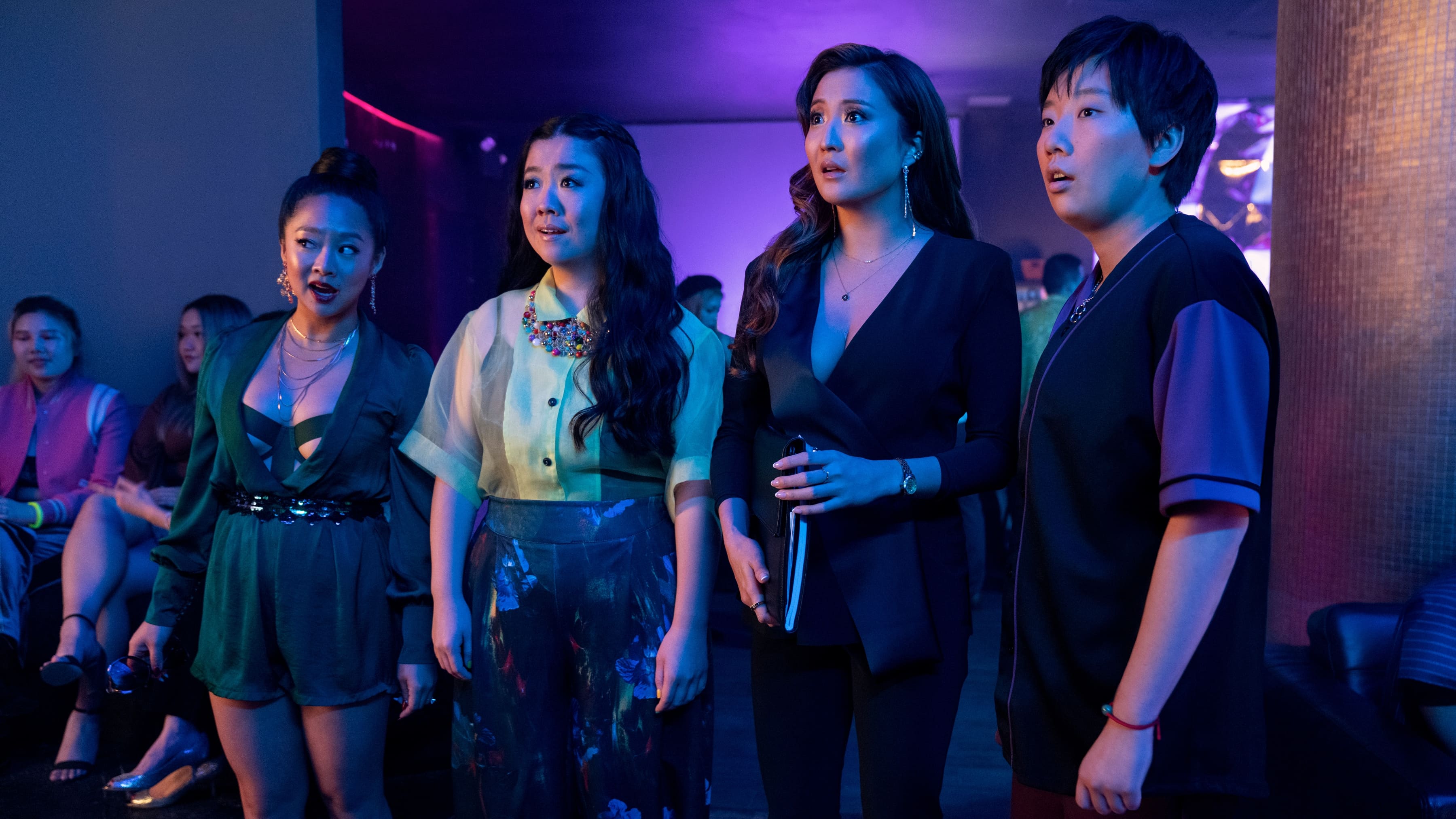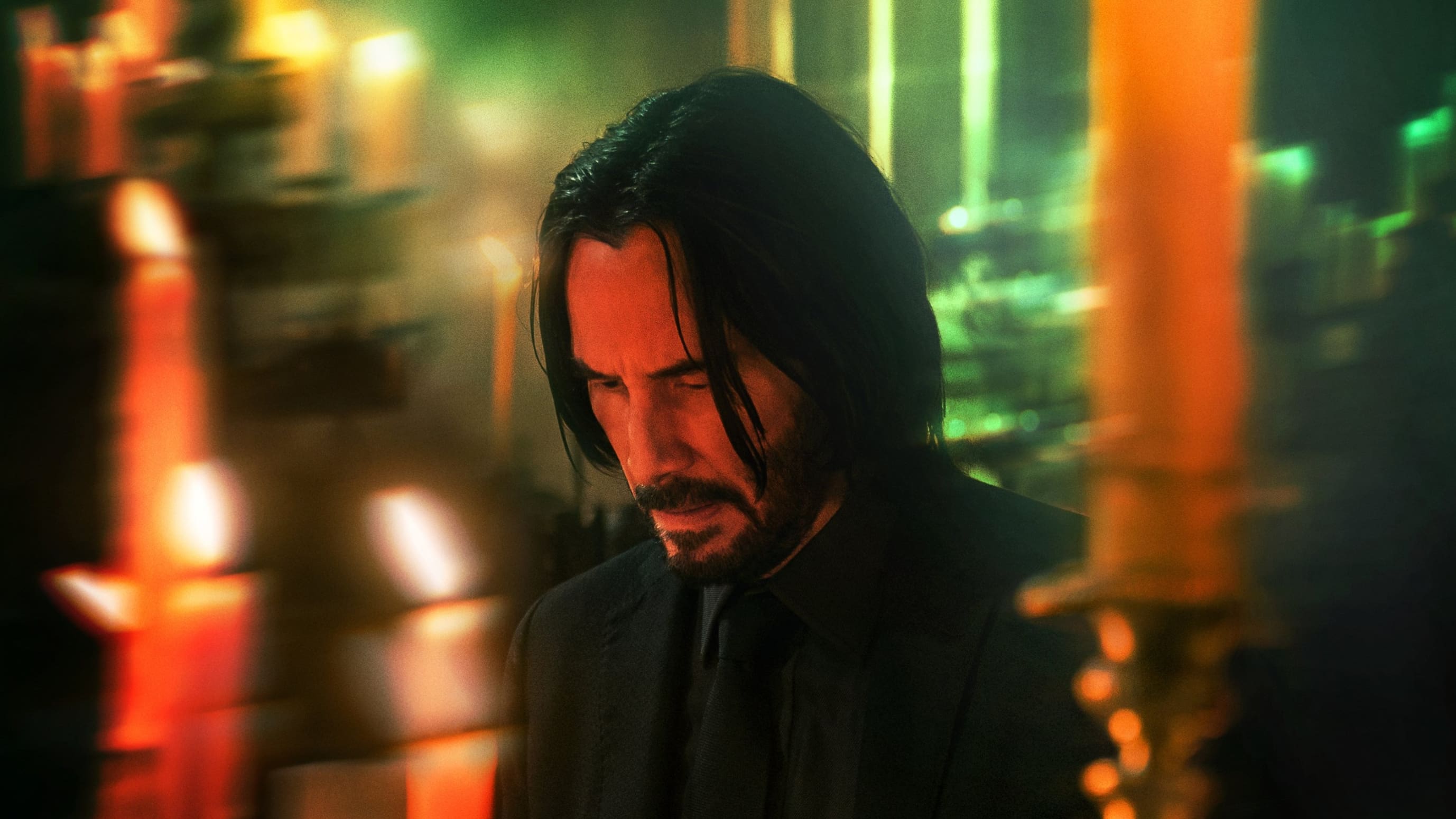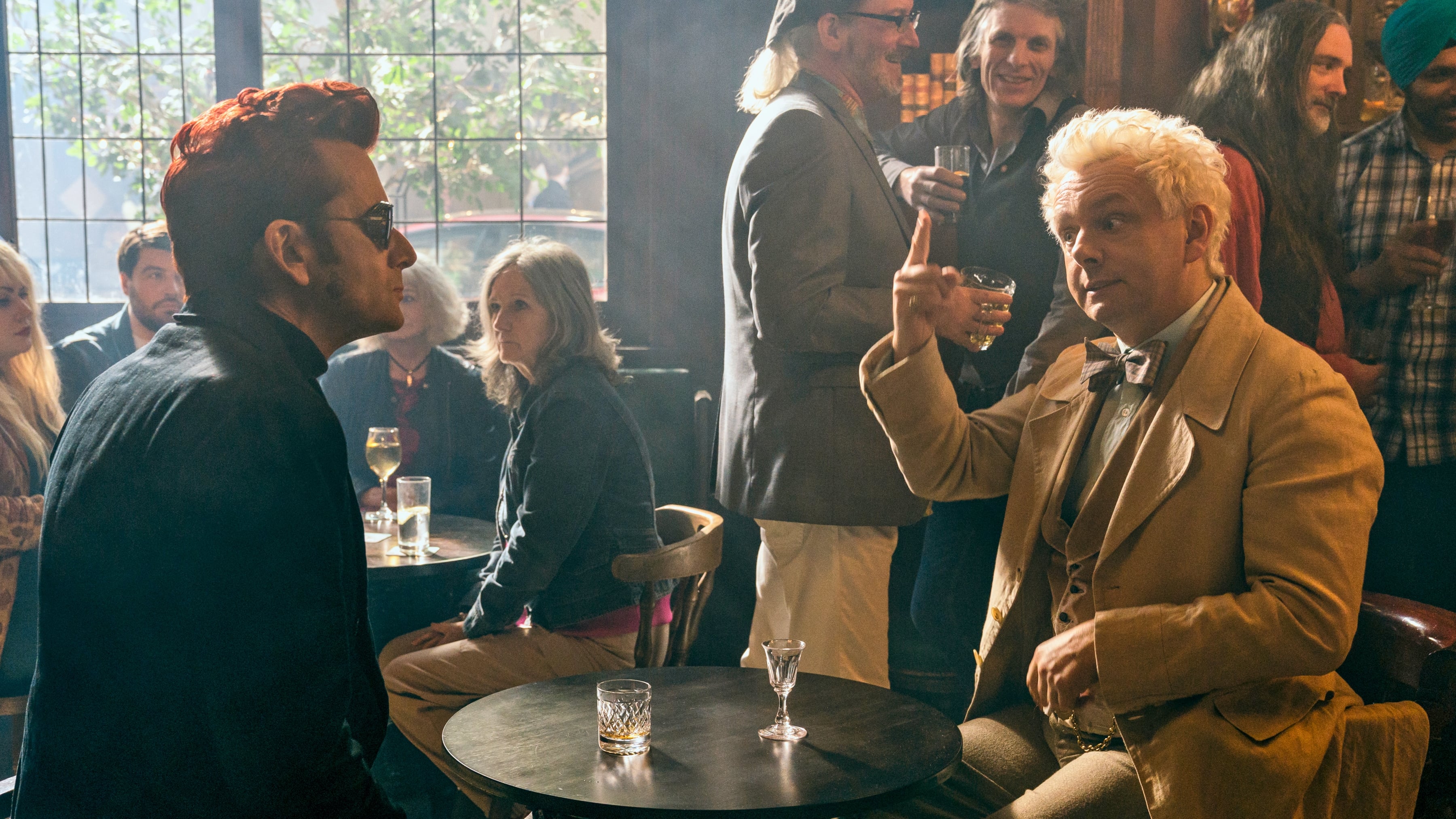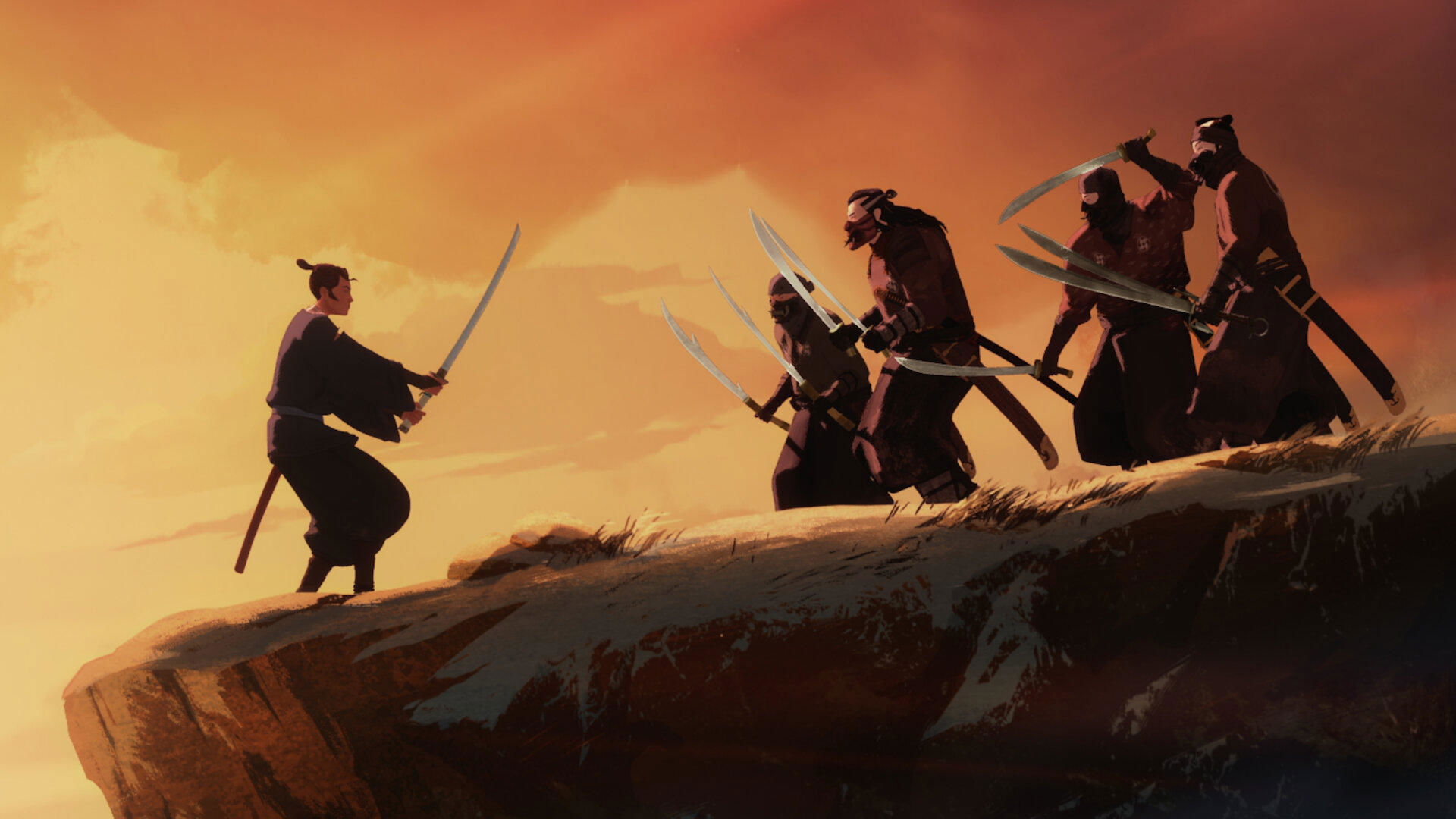Seen in January

The dangerous dames of Joy Ride.
Winter is a time for hibernating, which apparently is quite separate from the weather. There have been no ice or snowstorms to barricade us indoors, yet indoors we stayed. My apologies to the theatre owners but even if I only had to cross the street to get there, I may have still chosen to stay on my couch. The view was good, the sound was good, the in-house food service was good and there was a cat to keep us company so it's kind of hard to beat.
Joy Ride
Crave
At its heart, this is one of those R-rated, gross-out, explicit, road trip, journey of self-discovery comedies. The difference here is the predominantly female and Asian cast. It might sound like I'm dismissing this movie, but I'm not. It is very funny. If you've found yourself put off by the likes of Judd Apatow comedies then this might not be for you. That's OK, you'll just be missing out on one of the funnier movies made in a while. The movie revolves around two best friends who grew up as the only Asians in their very white town. Lolo (Sherry Cola) grew up knowing the language of her Chinese parents and her extended family, while Audrey (Ashley Park) was adopted by white parents, and overcame racial biases by putting energy into her aspirations by working to be the top of her class. A work trip takes the overly ambitious Audrey to China, which Lolo sees as an opportunity to find Audrey's birth mother. The real twist in the film is what Audrey actually discovers about herself and her past.
Doctor Who Specials 1-4
Disney+
For anyone worried that The Doctor had become too woke, you might want to maintain your head-in-sand position while the rest of us enjoy another invigorating reset of this long-running Sci-fi series. In the fifteen years or so since David Tennant was The Doctor, the character had been re-incarnated as an old-ish Scotsman (Peter Capaldi), a handsome chap who appreciated a bow tie (Matt Smith) and a woman with a charming northern accent (Jodi Whittaker) – all of whom remained decidedly British despite being an ancient time-travelling alien. For this special limited series, the creators brought back Tennant as The Doctor to reunite him with his companion Catherine Tate, for perhaps nostalgic reasons. The result is as fun as it ever was. By the end of this series The Doctor has reformed yet again to be replaced by a charismatic young, Ncuti Gatwa, who you might recognize from the Netflix series Sex Education. I wondered if the charm of this series might wear thin due to it having improved special effects and higher production values, but in truth, the show's stories and characters are the engine that makes the show run and the Tardis, the spaceship in the shape of an anachronistic police box, take flight.
Ferdinand
Disney+
I avoided this adaption of a Disney classic short (which in turn was an adaptation from a children's book) for three reasons: could they make a short film feature length, John Cena voicing the main character, Ferdinand the Bull, seemed dubious, and my own cynicism. It turns out all those reasons didn't add up to much as of course Disney knows how to tell a story, no matter what the source is. Then, after seeing John Cena in Peacemaker, I realized he was more than a one-trick pony. Cena does well here as the oversized bull raised to fight in Spain's bullfighting spectacle, but is more interested in flowers and friendship than fighting. In the end, Ferdinand proves the best way to overcome "bullying" (pun intended), is to not be one and to ask the ones who are, why they are. There are plenty of other lessons to learn in this family-friendly animated film but maybe the main one is not to judge a film by its poster art.

Keanu Reeves is John Wick.
John Wick: Chapter 4
Crave
Do I really need to explain what and who John Wick is? Keanu Reeves as John Wick, excels at this kind of fantasy, highly choreographed violence. The fight sequences really are like a ballet. A ballet where the lead dancer shoots a hundred guys in the face. Visually, this series of almost plotless action is both without rival yet also the child of a million music videos and ad campaigns. It is slick and moves at a tireless pace. Like accepting that Superman is an alien who can fly, you must be able to leave logic, reason and common sense behind before entering a world of highly paid assassins who abide by ancient rules of conduct, while simultaneously breaking those rules only moments after saying how unbreakable the rules are. Are the action scenes fun? Sure. Is the fighting style coined as 'gun-fu' as riveting as any dance performance? I suppose so. Then what's the problem? For me, whenever the film stops to take a breath, which isn't often, you have to wonder why any of it was worth it?
We're All Gonna Die (Even Jay Baruchel)
Crave
If the glorified gun violence of John Wick isn't your thing, then perhaps you'd like to consider for a moment how all of this will end. The world and the people in it, I mean. That's what Jay Baruchel did, which for someone who seems like a worrier, might be a bad idea. Baruchel hosts this exploration of the different ways the world could end, from earthquakes, global nuclear war, meteor strikes, and volcanoes to, of course, pandemics. Of all of these, the most surprising thing was volcanoes. Nearly every other disaster scenario may be overblown, unlikely or something that even when we aren't as prepared as we should be, we're still fairly prepared for. But volcanoes can sit silently for so long and then erupt so suddenly that there really is no knowing when our time will come. The reassuring thing is we'll be too dead to worry much about it.

Seeing your work through rose coloured glasses because, not to, may result in blindness.
Oppenheimer
Christopher Nolan's epic retelling of the development and deployment of the first atomic bomb and the complex man in the middle of all of it, Robert Oppenheimer. It's expected to rake in the awards, which is always a strange way to measure a film, but it has superb writing, cinematography and acting. I think what stood out for me was also the score and editing, which they say, if both are done well you shouldn't notice, so let me say I didn't "notice" those things as much as I felt them. This is a very talky movie about big ideas of science, philosophy, ideology, politics, ethics and betrayals and it is long. Yet, it hums right along and has you on the edge of your seat even though you know exactly what happened. Some new facts did emerge from the history of the bombing such as the day and targets were determined not by President Truman but by the weather and the military, also, I had never heard there was a spy at Los Alamos who managed to assist the Soviet Union in its own nuclear program.
Bottoms
Prime
Fight club isn't just for fully grown "Incels" anymore. This nerdy, nervous comedy is set in a high school where two teen lesbians start a "fight club" as a way to meet their prettier classmates. This ridiculous premise will both backfire and work exactly as planned. Rachel Sennott (PJ) and Ayo Edebiri (Josie), who you might know from The Bear, are great as the loser nerds of their football-obsessed high school. The film plays around with the tropes of these kinds of coming-of-age comedies and the fantasy of action films in a unique way, which makes it even more fun.

David Tennant and Michael Sheen enjoying each other's company in Good Omens
Good Omens 2
Prime
The follow-up to Good Omens (obviously) reunites the wonderful pairing of actors David Tennant and Michael Sheen, as an unexpected friendship of an angel Aziraphale (Sheen) and a demon Crowley (Tennant) who work together to save the place they love, the Earth. I'm not sure I would say this was better than the first season, but it feels better written, and better paced somehow. In this incarnation of the series, the archangel Gabriel (Jon Hamm) has gone missing from Heaven and Aziraphale (Ah-zira-fell) and Crowley work to find out exactly what's going on to stop an all-out war between Heaven and Hell. It's all good fun.
Miss Scarlet and the Duke, S01
CBC Gem
Set in 19th century London, Eliza Scarlett (Kate Phillips) is an unconventional female private detective, at a time when women still didn't have the right to vote. Her partner in crime, and perhaps romance is Scotland Yard inspector William Wellington (Stuart Martin). Despite not being connected in any way, this show feels like it belongs in the same universe as Murdoch Mysteries as historical crimes are solved in novel ways. The one thing I've noticed about these kinds of shows, is that the protagonists are surprisingly modern in appearance and affectation and never have a hair out of place, while any antagonist has sullied clothing and yellowed teeth.
To Kill a Tiger
Netflix
This is a very difficult documentary to watch as the subject matter is that of a father in a small remote village in India seeking justice for his teenage daughter who was the victim of a gang rape perpetrated by three young men in the same village. Throughout the film, there are many heart-wrenching moments but it does end on a more heart-lifting note. Despite all we witness, this strange epidemic of gang rapes in India is never fully understood, but then again, how could such a thing be understood? Centuries of misogyny, toxic masculinity, the general disregard for women, and a crippling bureaucratic legal system are only a few of the problems touched on.

Mizu versus the Four Fangs.
Blue Eye Samurai, S01
Netflix
As a friend pointed out, whoever is buying anime for Netflix has an obsession with Samurai revenge stories. Luckily, this Samurai revenge epic is a cut above. Mizu (Maya Erskine) is a mixed-race woman hiding as a man in Edo-period 17th century Japan. Her ethnicity is betrayed by her blue eyes at a time when Europeans were banned from Japan and as such she is seen as less than human. Raised by an expert sword maker she hides her gender to become a highly skilled warrior, so that she may exact her revenge against her white father who abandoned her and her mother to fend for themselves. Some serious plot holes appear late in the series, which make Mizu's revenge-fueled rage more difficult to understand but don't let that stop your enjoyment. The art direction is outstanding and the animation is first-rate. It is rendered to appear painterly and 2D and only occasionally reveals itself to be computer animation (though one particularly climactic fight sequence overloads on camera moves). One of the plot holes I mentioned was Mizu's motivation. The story is driven by Mizu's desire for revenge, but when given the opportunity to fulfill her wish or choose even more revenge, she chooses even more vengeance despite her not even knowing if any of it is true or not.


0 Comments:
Post a Comment
<< Home